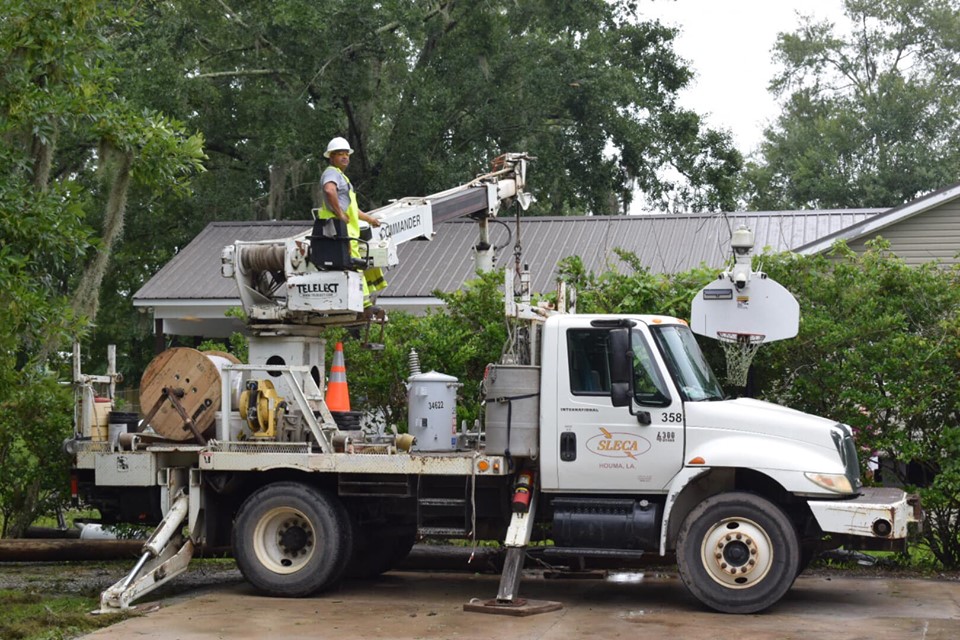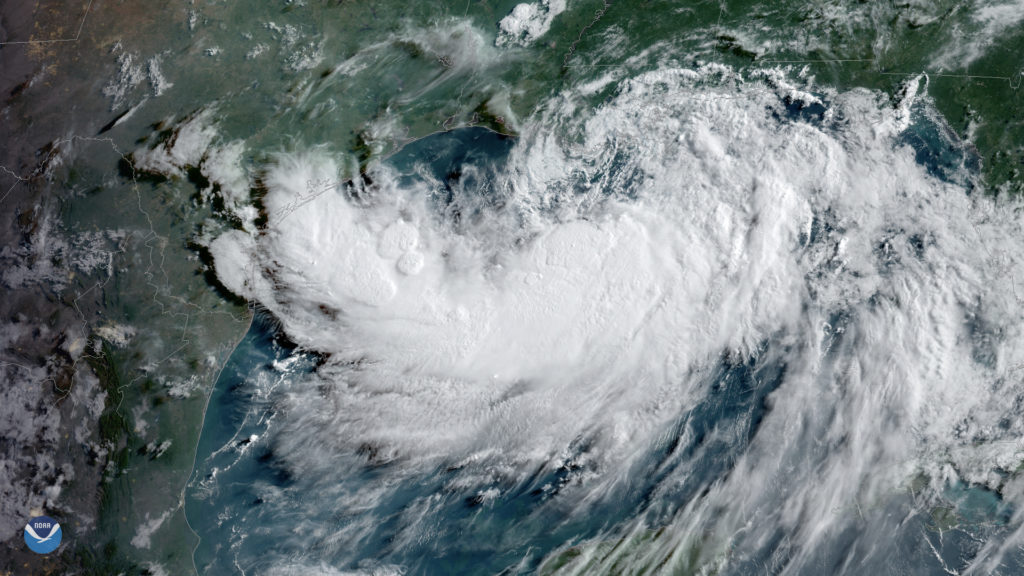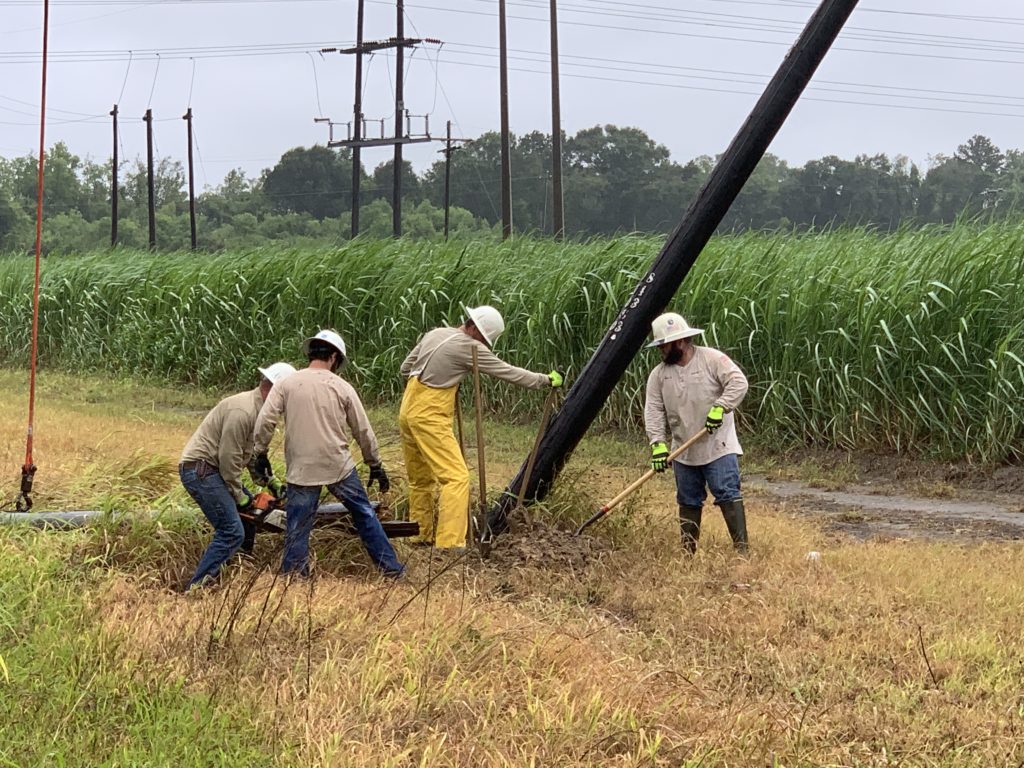
Updated: July 16, 3 p.m.
Hurricane Barry became the first tropical weather system of the 2019 Atlantic hurricane season to cross the U.S. coastline Saturday, keeping electric utility crews, including hundreds of lineworkers from electric cooperatives, busy over the past week.
The Category 1 storm knocked out electricity to about 186,000 utility meters, primarily in Louisiana, disrupting electricity to more than 50,000 co-op members. Restoration work began before Barry made landfall along the southwestern Louisiana coastline early Saturday afternoon.
“We started feeling the effects of the high winds—gusts of 70 mph—Friday night,” said Joe Ticheli, general manager of South Louisiana Electric Cooperative Association. “This storm knocked out between half and two-thirds of my entire system.”
Houma-based SLECA mobilized its entire workforce, keeping warehouse and member services operations staffed around the clock and line technicians and vegetation management crews in the field whenever conditions allowed.
Ticheli said the co-op had about 13,000 members without power at the height of the storm. “Because it was only moving three to four miles an hour before it made landfall, that just prolonged the agony,” he said. “Ninety-nine percent of the damage was wind. We were on the wrong side of the hurricane and we were on the bad side of the hurricane, the east side of it.”

The harshest conditions pummeled SLECA’s service
territory several hours before Barry’s landfall in Intracoastal City,
Louisiana. Crews hunkered down until winds subsided and began damage assessments
and repairs late Saturday morning.
“As of 8 p.m. Sunday, we had restored all of our
outages,” said Ticheli. “Bottom line, Barry was a problem, larger than what was
anticipated, but not necessarily as bad as we’ve seen.”
That sentiment was shared by officials from several co-ops serving members in the lower Mississippi Delta region.
“Beauregard Electric Cooperative did not receive much damage—much the same as a normal summer storm,” said Kay Fox, vice president of marketing and member services for Deridder, Louisiana-based BECi. She added that the co-op reported about 500 outages Saturday, but the numbers increased Sunday and Monday due to Barry’s heavy rains.
Flooding is expected to be a concern in the days ahead, as rainfall over already-flooded watersheds is expected to lead to flood-stage crests along the Mississippi and several other rivers across the Mid-South.

“We’ve told members that they will want to shut off their main breakers if flooding conditions near their property cause problems,” said Mary Laurent, spokeswoman for Southwest Louisiana Electric Membership Corp.
Lafayette, Louisiana-based SLEMCO completed restoration work to most of its 16,000 affected meters by Monday night.
Electric co-ops from several states pre-staged personnel and equipment in parts of southern Louisiana to assist with restoration, and some got involved in mutual aid, but many were released once the bulk of repairs were complete.
“When crews were released yesterday, we already had dinner ordered so we delivered the meals to public service authorities in a few of our service areas,” said Anne Hawes, manager of member and public relations at Dixie Electric Membership Corp., on Monday.
Baton Rouge-based DEMCO doubled its operations workforce of 125 with the help of contractors and 44 employees from co-ops in Florida and Oklahoma to restore service to about 6,200 of its meters before wrapping up initial repairs Sunday evening, Hawes said.